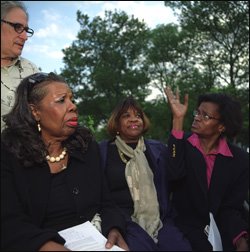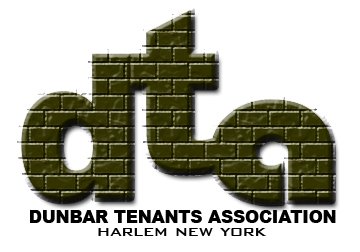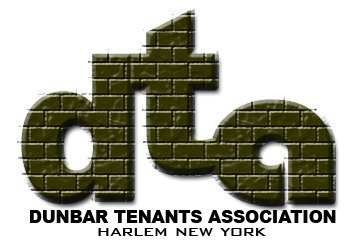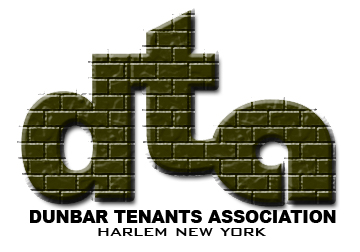
by Kristen Lombardi
The Village Voice
Pedro Garcia got a registered letter from his landlord last August, a few months after his parents moved from the apartment where he grew up in Washington Heights. Garcia, 28, who runs a family-owned grocery store, had lived with them in their rent-stabilized place on Riverside Drive for 15 years.
In 2003, the Pinnacle Group bought the building, at 610 Riverside. By the time the letter arrived, Garcia had gotten used to hearing horror stories from his neighbors who'd found similar surprises in their mail.His showed up after his parents bought a house and moved into it, leaving Garcia and his two kids in the apartment. Under city rental law, he should be able to continue living in the apartment. But Pinnacle moved to evict him, claiming he wasn't the legal tenant. His mother had signed the original lease, and she had tried to renew it in her son's name last year. "He wouldn't accept the lease with my name on it," Garcia says, referring to the company's owner, Joel Wiener. Nor would the firm cash his $620 monthly rent checks, letting him accrue $4,000 in arrears instead.So Garcia has had to appear at Manhattan Housing Court. Twice, he has produced his birth certificate, utility bills, and rent receipts. Twice, Pinnacle has refused to settle."What he's doing to me he's doing to other people," says Garcia, his case still pending. "He wants to kick people out."
Over on West 150th Street, in Harlem, Ray Jones has also gotten a registered letter. His eviction notice from Pinnacle came last fall, after the company bought the 540-unit Dunbar Apartments, where he has lived with his family since 1967. Jones, 45, a retired corrections officer, has turned out to be one of hundreds of Dunbar tenants in jeopardy.At first, Pinnacle took Jones to housing court for not paying rent. He was deliberately withholding his money to force the company to perform repairs on his rent- controlled apartment. In January, a judge ordered the landlord to fix eight code violations and compensated Jones, wiping away 30 percent of his $1,700 rent debt.Next, the company challenged his legal tenancy. Over the past six months, he has appeared in housing court five times, armed with phone bills, old driver's licenses, and records dating back two decades to prove he has succession rights to his home. A judge ruled in his favor, yet Pinnacle still refused to give Jones new keys. To get a pair, he had to return to court�twice."I feel these are tactics," Jones says. "It's intentional harassment to try to get you out."That sentiment came across only too clearly at a special May 15 hearing about Pinnacle, one of the city's largest owners of rent-regulated apartments. More than 200 residents from Upper Manhattan turned up for the forum convened by three community boards. There, for over two hours, politicians like Democratic U.S. representative Charles Rangel, of Harlem, and City Councilmember Robert Jackson listened to emotional testimonies from tenants. One of the renters called Pinnacle a "high-tech slumlord."One by one, residents accused Pinnacle of aggressive court tactics�attempts to violate tenants' succession rights, for example, and to evict for bogus reasons. They complained that the company fails to make repairs, or delays repairs, or does shoddy improvements to raise rents beyond regulated limits. Mostly, they blasted the real estate giant for moving into their neighborhoods and moving them out.
Today, Pinnacle has come to epitomize the gentrification of northern Manhattan, where rents remain relatively low and apartments are large. The company has purchased dozens of buildings throughout Harlem, Washington Heights, and Inwood, quickly installing floodlights around the perimeters and posting trademark American flags out front. The effect is particularly pronounced at the now ultra- illuminated Dunbar complex, with its 40-odd buildings. "You probably can see the Dunbar from space now," says Michael Drake, who has lived there since 1967.Nowhere is Pinnacle's stake in the area more apparent than along Riverside Drive, from West 135th north, where 12 or so properties shine brighter than the rest, their flags rustling in the wind. Wiener has owned some of these Riverside Drive properties since the 1990s. But he has quietly bought most of his 200-strong real estate portfolio in Manhattan more recently. A review of city records shows that he and his partnerships owned 19 buildings in 2003, and 37 a year later. Then, in August 2005, he purchased some 70 buildings in and around Harlem for more than $300 million in funding from the Praedium Group, a national private-equity firm.That doesn't take into account properties in the Bronx, Brooklyn, and Queens. Currently, city officials believe Pinnacle owns 420 buildings in all five boroughs, or 19,085 apartments.
Wiener declined an interview request from the Voice for this article. Instead, he issued a five-paragraph statement in which he insists his company's tactics are aboveboard. To hear him, the firm has never wrongly evicted a tenant. Nor has it done slipshod repairs or cosmetic improvements simply to hike up rent. Pinnacle, Wiener points out, has just done an independent survey of tenants and found that most are "satisfied.""We work very hard to restore [buildings] into affordable, safe, attractive homes for our tenants," the statement reads. "We want them to be places we are proud of and places in which tenants are proud to live."Try telling that to Kim Powell, of the newly formed anti-Pinnacle group Buyers and Renters United to Save Harlem, or BRUSH. A Pinnacle tenant for nine years, Powell, 45, who lives at 706 Riverside Drive, says she has been battling the landlord's methods. Case in point: In 1999, she noticed her bedroom wall bulging from water damage. Rather than fix the leak, she says, Pinnacle workers installed a layer of Sheetrock to disguise it. Last year, the Sheetrock crumbled and workers returned. Now, Powell says, the wall is buckling again."That's the kind of repairs Pinnacle does," she says. "It's one tactic."BRUSH's Heidi Clyde counts herself a veteran of Pinnacle tactics too. Clyde, 28, has lived in her rent-stabilized apartment at 668 Riverside Drive since age two. Clyde's mother died in 1994, and Clyde remained in the apartment. Then in May 1999, Pinnacle bought the building. Within months, she says, "I started getting court papers from Pinnacle." In the next year, the company moved to evict Clyde repeatedly, claiming everything from nonpayment to illegal tenancy. Finally, in 2000, the company backed off and gave Clyde a lease."I've been fine since," she says. But hearing new tenants relay their court experiences has struck a chord for her. "It's obviously systematic."Tenants and politicians alike fear that a pattern of gentrification is at work: A landlord gets existing tenants out, raises the rents, and in the long run, goes condo.Says Councilmember Jackson, who has gotten involved with BRUSH, "By operation, Pinnacle is driving people out."Not everyone believes that Pinnacle has a grand plan. Frank Ricci, of the Rent Stabilization Association, which represents 25,000 property owners in the city, including Pinnacle, doesn't buy the argument that Wiener is just looking to make a buck. Sure, some landlords pay too much for rent-regulated buildings, and they try to squeeze out existing tenants. But not Wiener."I don't believe that's his motivation," Ricci says. Two months ago, he says, Wiener came to visit him at the association, giving him a presentation on his real estate purchases. He showed him before-and-after pictures of buildings Pinnacle bought last August�including neglected structures owned by Baruch Singer, who ranks ninth on nycworstlandlords.com and made the NYC Housing Preservation and Development Department's list of "major problem owners" in 2003. During Wiener's spiel, Ricci relays, "he said to me, 'Look, I don't do this for the money anymore. I do this because I believe in preserving old buildings.' I have no reason not to believe him."Besides, he says, Pinnacle has actually improved buildings.
Over at the Dunbar, which had fallen into disrepair under Singer, city inspectors recorded some 2,000 violations before August 2005. Now, the number has dropped to around 400. City records show that the company has 19,470 violations to date, or an average of one violation per unit. As far as slumlords go, that's benign�indeed, city officials say the worst landlord has buildings with 20.9 violations per unit.Even Pinnacle tenants say things have gotten better. Barbara Nienaltowski, of the Dunbar Tenants Association, says residents "were fighting a different kind of battle before." Under Singer, they couldn't get basic services. Security was weak. Trash littered the halls. Tenants had to fight for repairs.Now, as it typically does, Pinnacle has installed 84 security cameras in the complex, as well as new doors and intercoms. It has improved the common areas, trimming gardens, collecting garbage, and cleaning out the flea-infested basements. Nienaltowski explains, "A lot of people here look out the window and think Pinnacle has done a good job, and they have. But the question is for who. Is it for the people who live here now or the people who will come and take our places?"The threat of being pushed out has galvanized tenants to fight back. Back in November, for instance, Powell and eight other tenants got the idea to form BRUSH after receiving news that Pinnacle plans to convert their Riverside Drive buildings into condos. The company's asking price for their longtime homes? $800,000 to $1 million."There is clear displacement afoot," Powell says, "so we decided to put on the pressure."And they have. In the past six months, BRUSH has spearheaded several community meetings drawing hundreds of angry Pinnacle tenants. In March, it pushed for the West Harlem community board to hold a hearing on the company, where board members say they heard more complaints about a single landlord than in recent memory. That month, after getting deluged by tenant phone calls, Democratic state assemblyman Keith Wright, of Harlem, joined BRUSH in what he calls "a good old-fashioned picket line" outside the company's midtown headquarters."You don't want this many forces to go up against you," Wright observes. Pinnacle critics may not have the deep pockets, he says, "But I go back to the old philosophy, 'The people united will never be defeated.' That's what has begun."After last week's hearing, at least, elected officials are pledging to stop the so-called Pinnacle takeover. Congressman Rangel tells the Voice he's reaching out to local bar associations to round up lawyers to help tenants pro bono. And he plans to appeal to Mayor Michael Bloomberg. Perhaps the city could investigate Pinnacle, he says, or provide funding to save affordable apartments.Other politicians have bigger ideas. Jackson talks about raising money for a nonprofit solely devoted to keeping Pinnacle in check.For tenants, it's personal. "My roots are here," says Jones, who recently became vice president of the Dunbar Tenants' Association. "So I am not afraid to fight. I will organize, agitate, and do everything I can to ensure tenants don't lose their homes."


